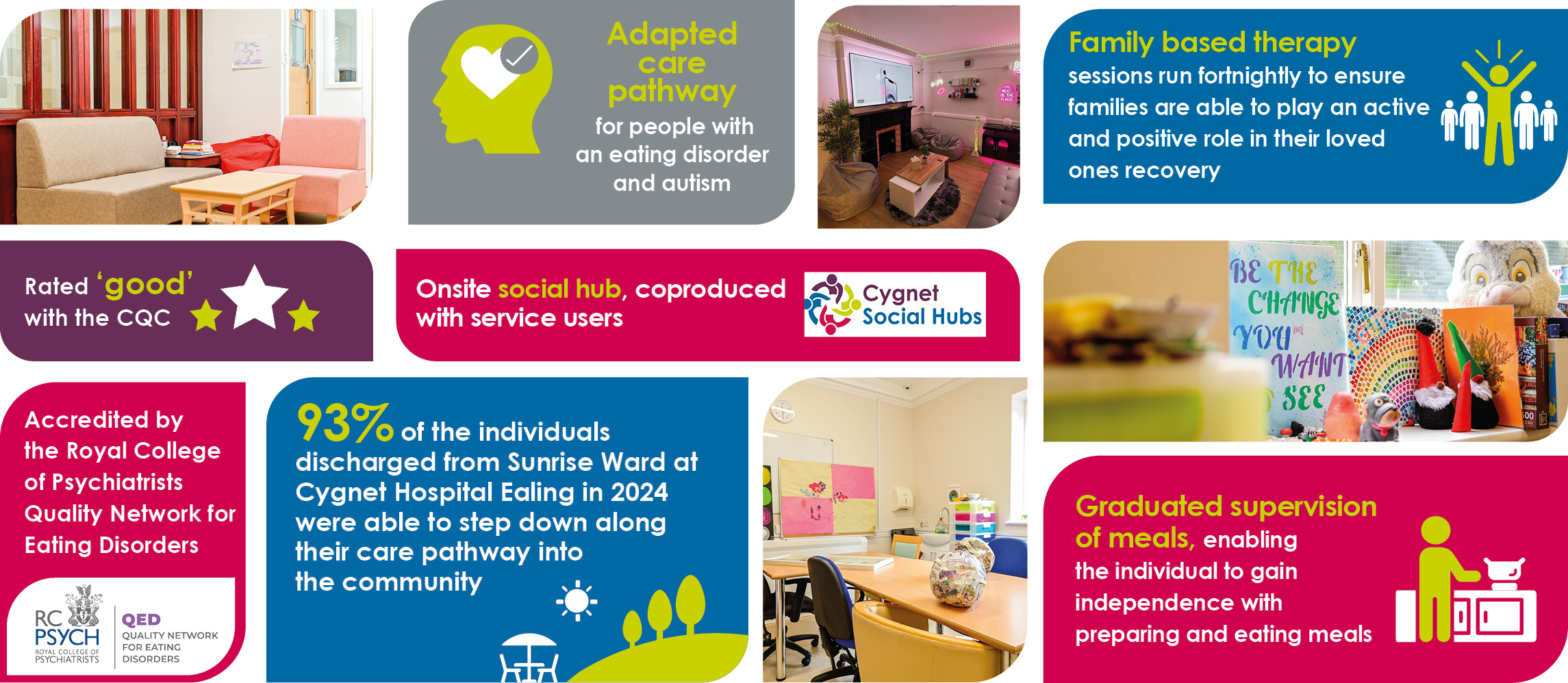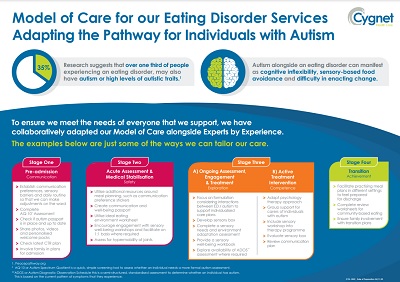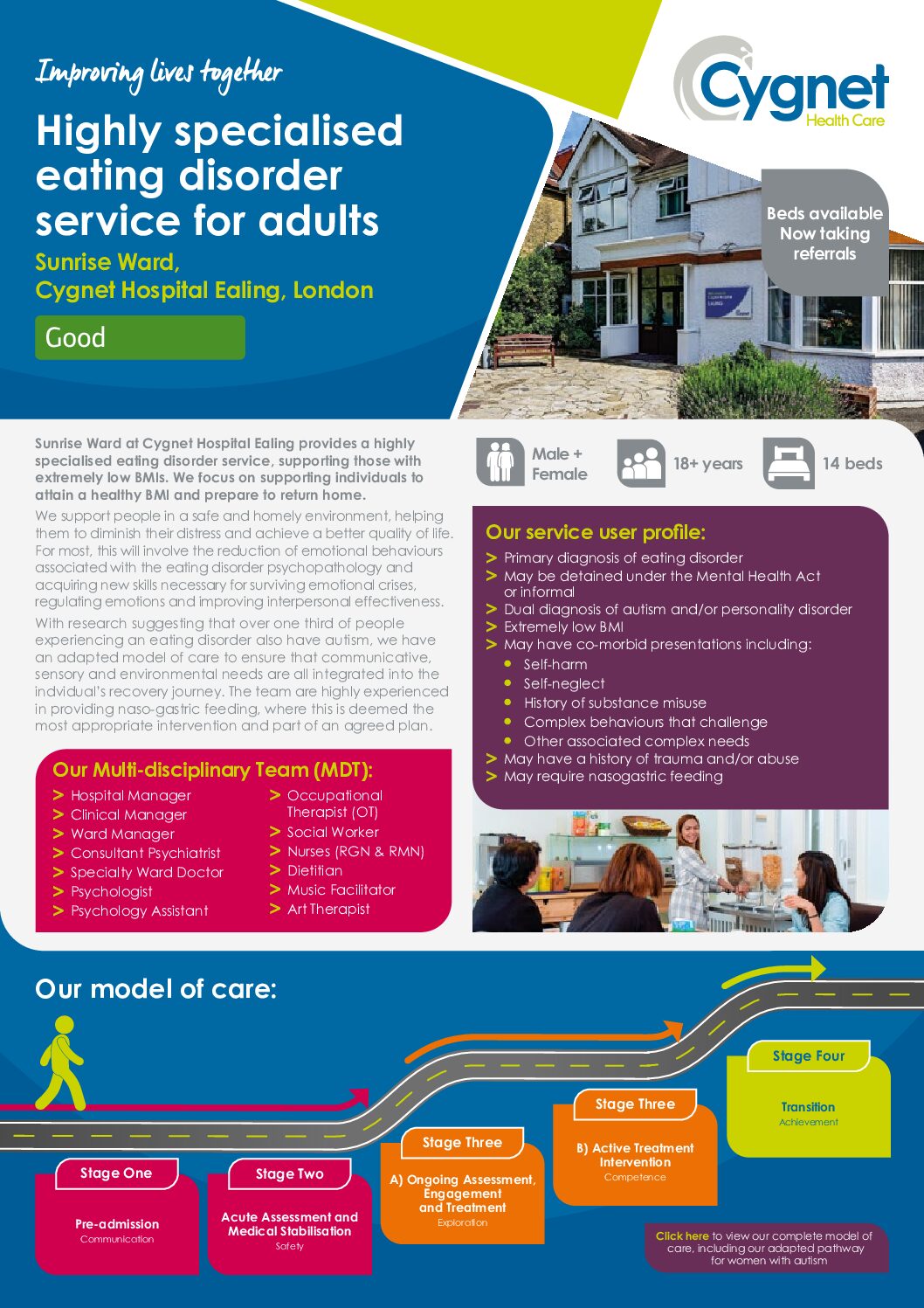
Gender: Female
Age: 18+
Beds: 14
We support individuals in a safe and homely environment. We engage with them to help diminish their distress and help them achieve a better quality of life. For most individuals this will involve the reduction of emotional behaviours associated with the eating disorder psychopathology and acquiring new skills necessary for surviving emotional crises, regulating emotions and improving interpersonal effectiveness.
Bespoke Care Packages
Custom-made placements for individuals struggling to make progress in conventional ward environments.
The service offers a phased treatment pathway which aims to help the individual understand and plan their journey through treatment. We focus on the need for treatment to be collaborative with the women we support, taking account of individual needs, driven by multi-disciplinary understanding, support and interventions.

We focus on supporting individuals to attain a healthy BMI and prepare to return home.

Our adapted Model of Care for women with an eating disorder and autism
View our adapted model of care which ensures that communicative, sensory and environmental needs are all integrated into the individual’s recovery journey.
The team are highly experienced in providing naso-gastric (NG) feeding and can offer this support upon admission when required.
Emily’s Story
In early 2023 Channel 5 aired a documentary called ‘Anorexic’. The video featured the stories of three young women, including Emily, who were in various stages of treatment for an eating disorder. In the documentary Emily was shown being discharged from Cygnet Hospital Ealing before going to university just a few weeks afterwards.
A year later we caught up with Emily and her mum to talk about their experience of Cygnet Hospital Ealing and how life has been for them since Emily was discharged.
Our service user profile:
- Primary diagnosis of eating disorder
- May be detained under the Mental Health Act or informal
- Dual diagnosis of Autism Spectrum Disorder (ASD)
- May be detained under the Mental Health Act or informal
- Extremely low BMI
- May have co-morbid presentations including:
- EUPD (Emotionally Unstable Personality Disorder)
- Self-harm
- Self-neglect
- History of substance misuse
- Complex behaviours that challenge
- Other associated complex needs
- May have a history of trauma and/or abuse
- May require nasogastric feeding
- Able to accept men where appropriate






